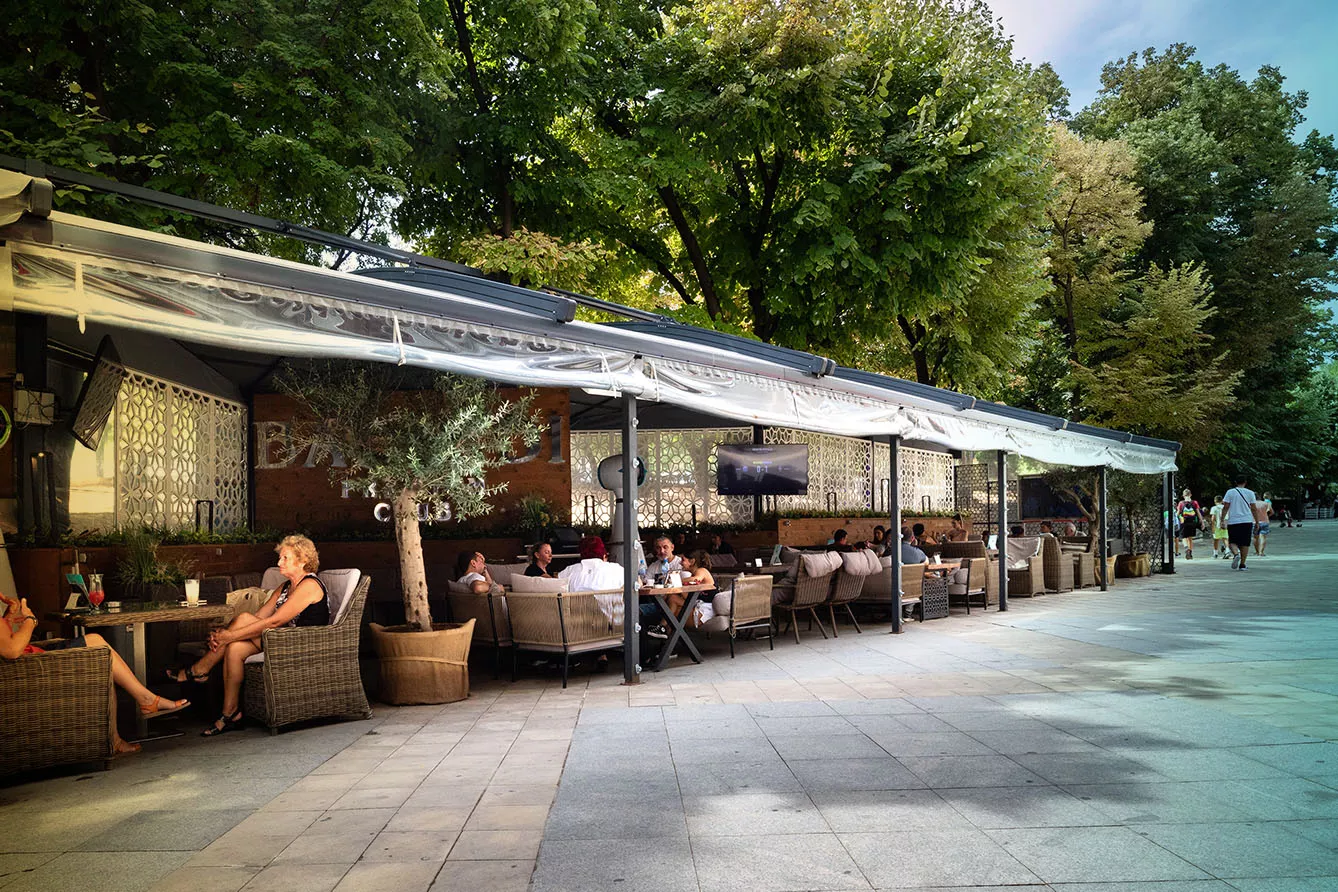During the Bulgarian National Revival, a period ending with Bulgaria’s independence from the Ottoman Empire in 1878, Shumen was a bustling town. Back in the day, this northeastern city was home to two coffee shops. Located along Tsar Osvoboditel Street, the cafes were a popular spot for locals to gather and catch up on the news. Many decades later, little has changed: The coffee shops, now considerably more, have moved two streets over to Slavyanski Avenue.
Shumen: land of the cafes
For over 20 years now, a large part of Shumen’s main pedestrian street has been occupied by cafes. Starting from Madara, a now-defunct hotel, and ending at the city’s Central Park, coffee is available in various establishments along an estimated two-kilometer stretch. The COVID-19 pandemic took a toll on the number of coffee shops along the promenade, but that didn’t stop one of its former mayors from proposing entry into the Guinness Book of World Records as the longest café in the world.
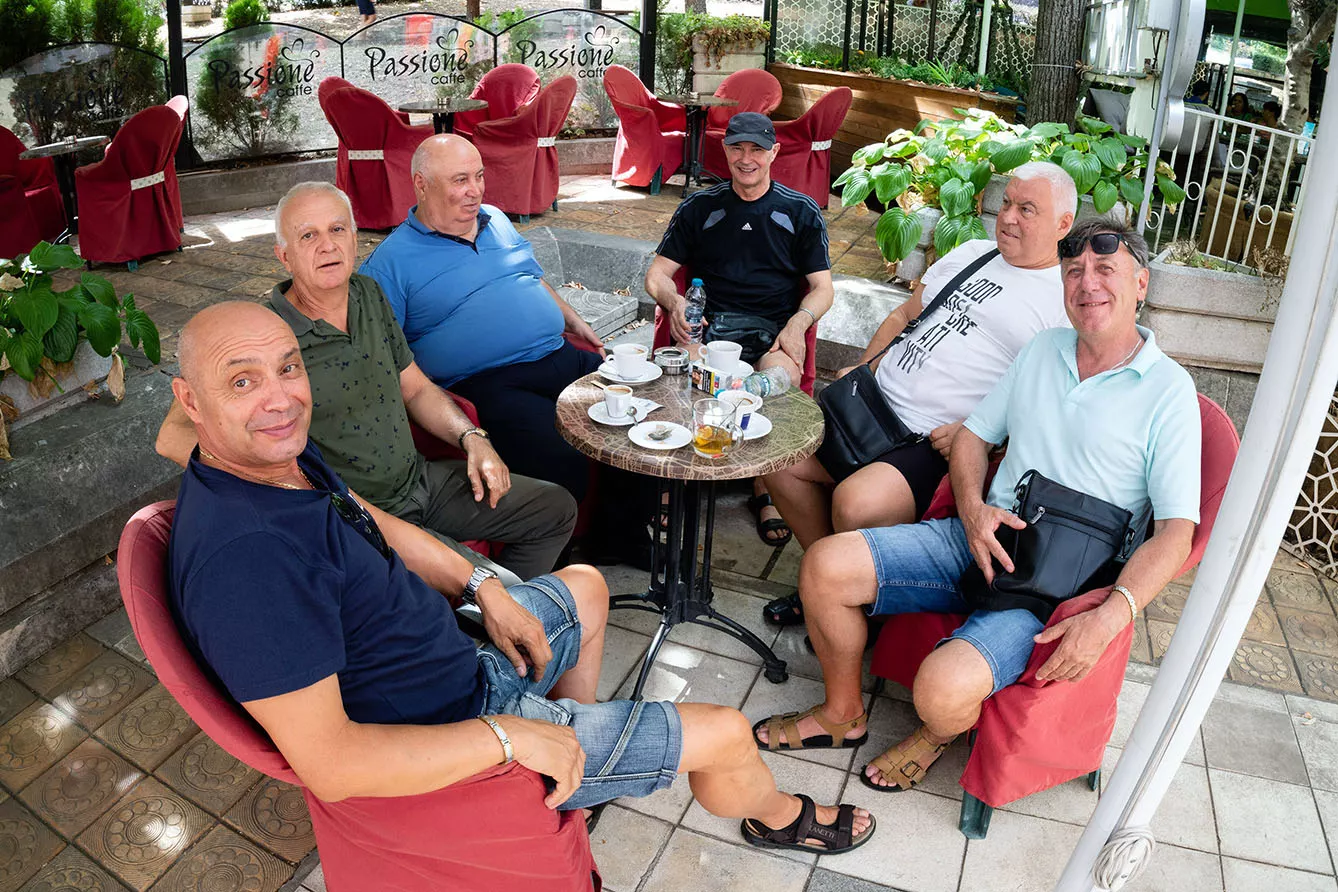
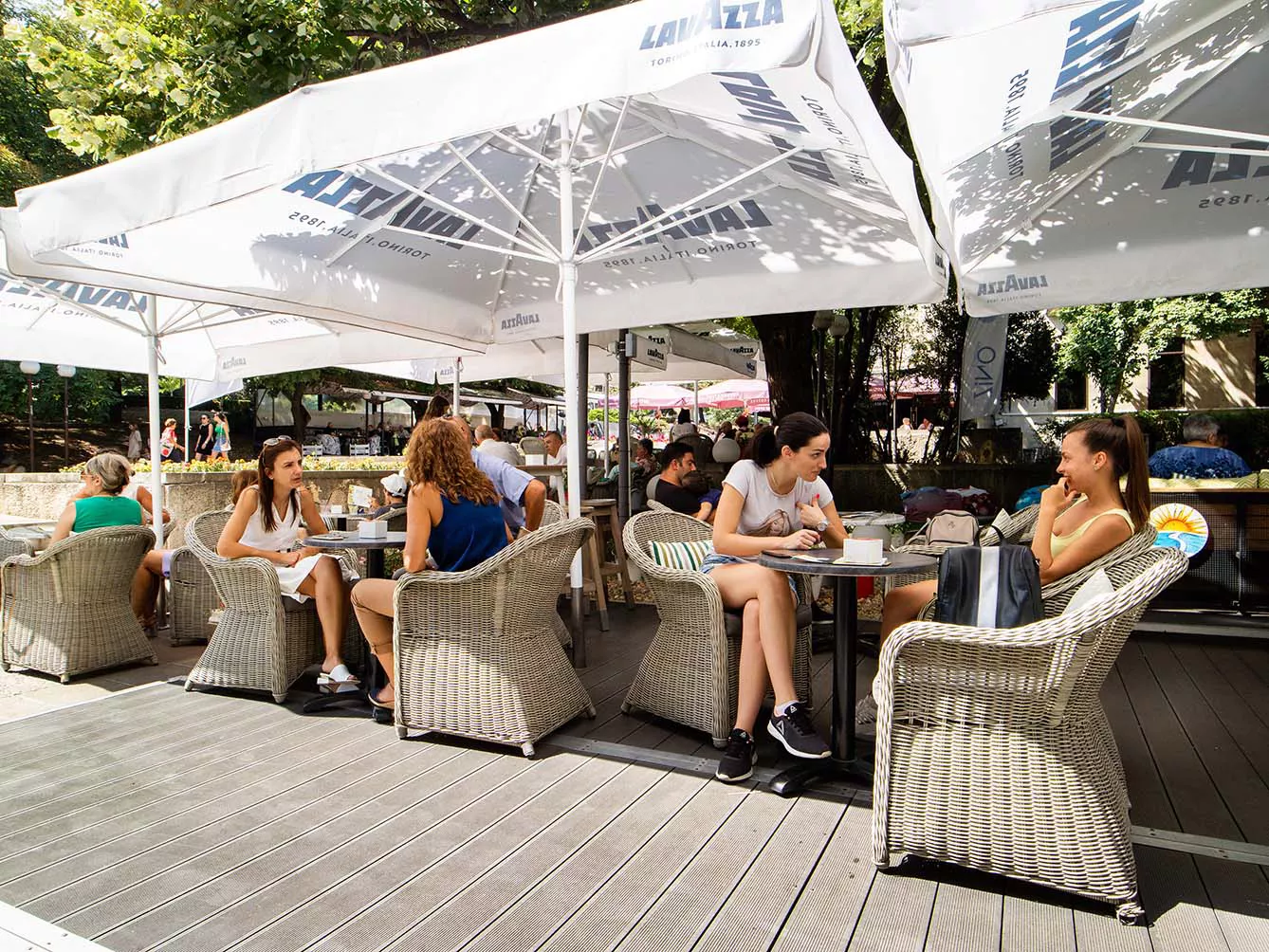
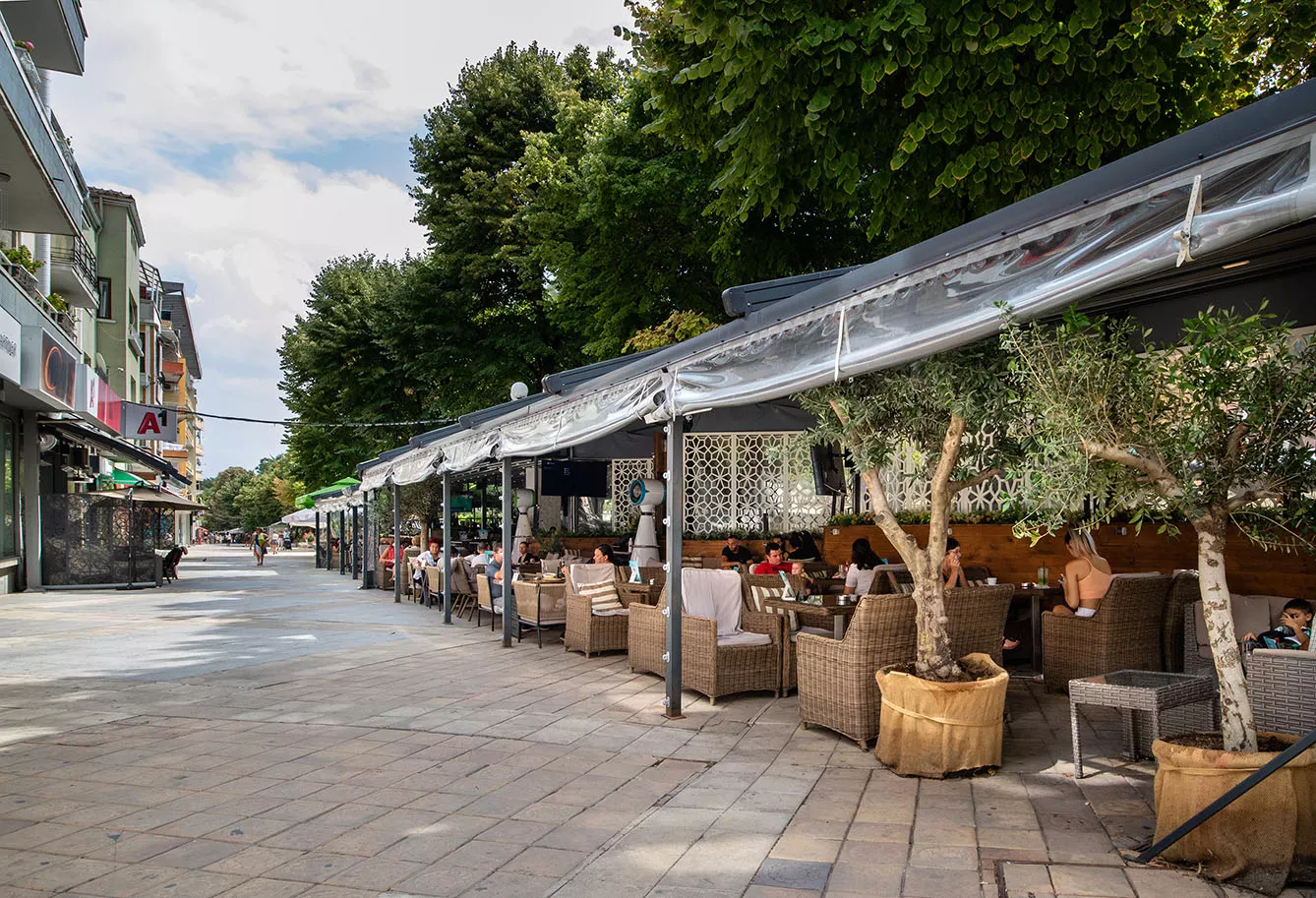
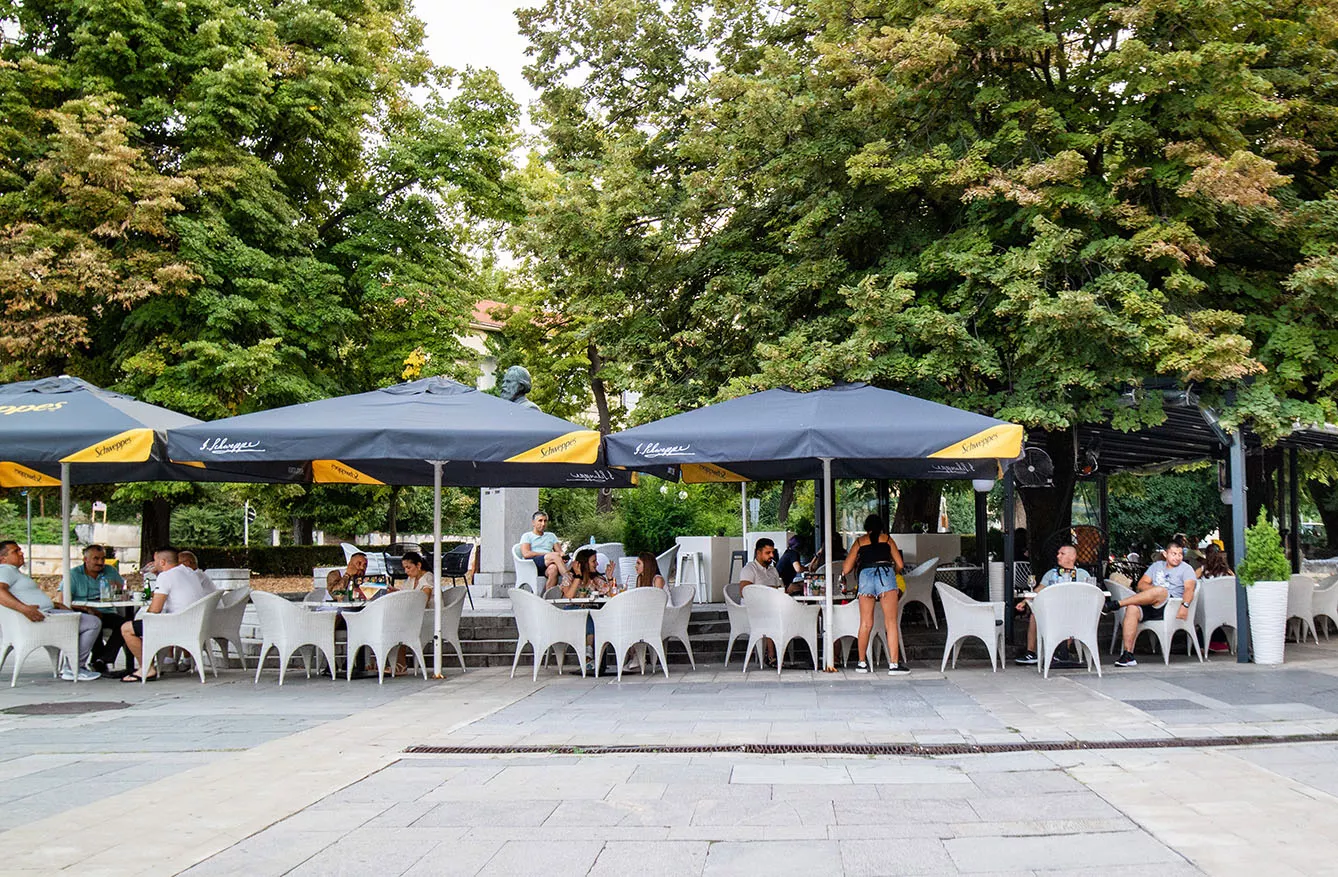
Charming cafés or public nuisance?
But don’t let the quiet street lined with trees and beautiful old buildings fool you: Tensions simmer with residents wondering if a coffee shop is the best use of public space. “It’s important to have places for recreation. But citizens are complaining that outdoor venues in the central area are densely packed. Mothers with strollers often express discontent over not being able to move freely,” says Christofor Krumov, member of the Shumen City Council’s Committee on Spatial and Settlement Planning. Krumov has assembled a list of complaints in writing which he will present during a session of the local parliament.
On the other side is Daniela Russeva, the former City Council president. “I don’t see anything wrong with that. People like to sit on the main street in the cafes under the chestnut and linden trees. There are also many cafés on Champs-Elysées in Paris. And they face the street. Why not in our city too?” Russeva asks. “Let’s not forget that these places also provide jobs. I don’t see the problem if they are respectful of the surroundings, and I do think most of these cafes are decent.”
Shumen: Where pedestrians rule
Shumen’s main street, Slavyanski Avenue, was redeveloped by local architects in the late 1970s and opened to the public a few years later. In line with the then-ruling trend of designing spaces primarily for people, not cars, the project, which was featured in the new exhibition “TOTALPROEKT. The Invisible Architecture of Modernity” organized in Sofia by the New Architectural Heritage Foundation, much-reduced car traffic. The newly released space was then handed over to pedestrians.
“The varying levels across the two lanes of the boulevard, the passageways, and the greenery, all the trees created the perfect conditions for an incredible project. Shumen built the most beautiful pedestrian area in Bulgaria,” writes local architect Zdravko Peev in his book ‘Tender, but also other times.’ “Such beauty, delight, and pleasure, deep shadows with benches and passageways cannot be found elsewhere. Add to this the scent of the linden trees in the summer. That’s why it is an incomparable pleasure to enjoy a cup of coffee or ice-cold beer in the scorching sun in the shadows of this longest cafe in Bulgaria.”
Capitalism rules in Shumen
In the years of socialism, the street was commonly known as “gezme,” a place for walking, manifestations marking mostly Communist holidays, and parading one’s latest outfits. Back then, the main street had a total of one café. Bulgaria’s transition to democracy in the 1990s was noticeable also on Shumen’s main street, with shops and cafes rapidly opening and trying their luck at capitalism.
Three decades later, coffee shop owners not only compete with each other, but they also have to deal with a new threat: The rise of the vending machine coffee. “The vending machines allowed by the City Council are totally ruining our business,” shares coffee shop owner Rumen Slavchev.
“Just around my summer garden, there are seven vending machines. All along the street, a colleague of mine counted over 50 vending machines.” Slavchev complains that even people dressed for a leisurely coffee date opt for a 20 euro cent coffee from a vending machine instead of spending time in one of the numerous cafes awaiting them. He suggests that café owners should demand a ban on vending machines, as is the case in Italy.
The drama continues. For now, you can still find out the latest developments on this and other local news from any coffee shop along Shumen’s main street.


